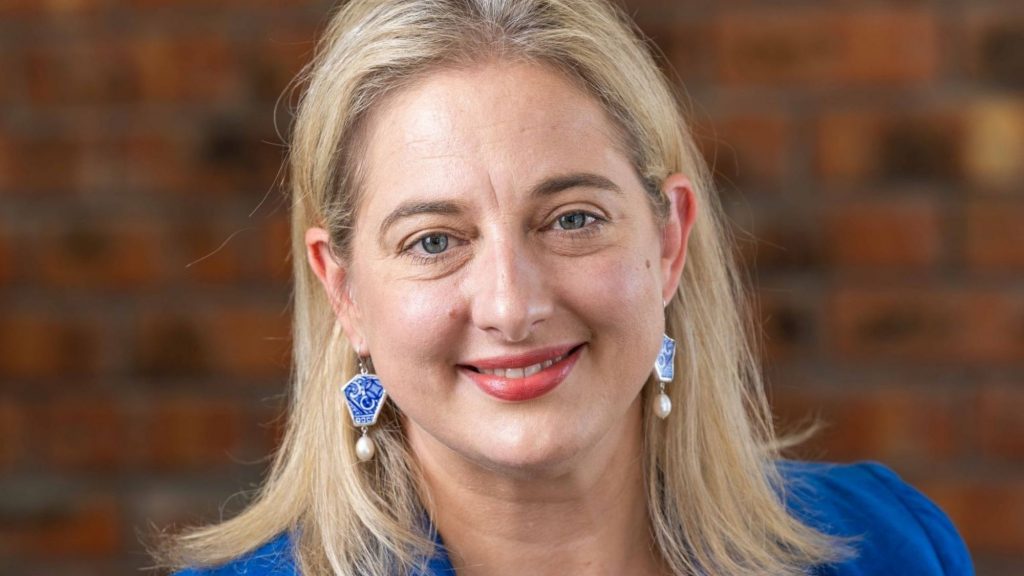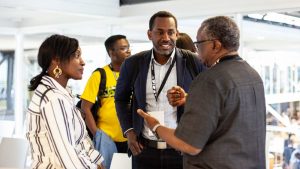LG’s 100-Inch QNED evo AI TV Redefines Big-Screen Viewing in South Africa In a bold leap forward for home entertainment, LG Electronics South Africa…
Angel investors plug early-stage funding gap in Africa

One of the biggest challenges facing entrepreneurial startups in sub-Saharan Africa is funding – particularly early-stage financial support – even though the landscape across the region has evolved over the past few years with more funders and capital deployed in this space.
This has been driven primarily by a growing appetite for alternative investments, successful recent exits, e.g., Paystack in Nigeria, and the fact that startup investments have become more accessible, writes Alexandra Fraser, the director and founder of Viridian.
However, this capital increase is not evenly distributed. Less capital is available during the early stages, and women entrepreneurs continue to struggle to access funding. Similarly, certain countries and specific sectors also battle to access capital. Raising capital as an established fintech in Lagos, for example, is vastly different to raising capital for a proof-of-concept agritech business in rural Tanzania.
Even though several funds were established for African startups, the majority is aimed at those with a proven product that is market fit and ready to scale to new customers and markets. This has resulted in an aid gap for early-stage startups.
Angel investors to the rescue
Angel investors – defined as an individual or groups of individuals who usually provide equity capital for startup businesses – are ideally positioned to help plug the seed-stage gap. In addition to providing capital, hands-on angels typically leverage their networks for their investee companies, providing access to customers, mentorship, advice, and support to founders.

To fill the early-stage funding gap, the continent urgently needs more investors. The African Angel Academy (AAA) aims to address this. An African-led initiative, the AAA was established to grow the number of active angels on the continent to catalyse the local startup and early-stage investing ecosystems.
Initially established as a pilot project with 50 angel investors from five Southern African countries, the Academy has expanded its reach and partnered with leading development financiers and ecosystem enablers to run bespoke programmes with cohorts of new angels.
Its biggest successes were in “Africa’s top three.” Over the past 18 months, the AAA, in partnership with the UK Government’s International Tech Hub Network, has trained and connected over 240 emerging angel investors from Kenya, South Africa, Nigeria and the UK, providing them with support, tools and knowledge to become active angel investors.
Advancing women entrepreneurs
Over half of these emerging angel investors have been women. This is critical if we hope to ensure women entrepreneurs receive a more equitable share of funding and remove the stereotypical biases against female founders from predominantly male fund managers and investment professionals.
This was confirmed by our recent AAA Alumni survey, which found that 63% of investments were made into women-founded or co-founded businesses. This is an astounding statistic when you compare it to the norm: “7% of the funding has gone to female CEOs in 2021 in Africa; less than 1% to single female founders and female-only founding teams” according to Africa: The Big Deal (2022).
The value of the AAA programme is that it builds confidence, fills knowledge gaps and creates stronger relationships, converting accidental angels into active angel investors with a clear investment strategy and network to leverage. And it is working!
Ninety-seven percent of participants feel more confident to make investments on completion of the programme, and over $2 million has already been invested into the startups showcased through the programme.
As the programme has evolved, we have noticed an interesting trend. This is the growth of more angel investor groups that collectively invest in startups in their ecosystem. In total, seven new angel groups were formed among programme alumni from Kenya, South Africa, and Nigeria.

A good example of this is the Nairobi Business Angel Network (NAIBAN), a group consisting of over 50 angels who have already invested over $420 000 into 11 different deals across the continent.
Two of these were sourced through the AAA startup showcases. In addition to the amount directly invested, this group has leveraged an additional $3,15 million for their portfolio companies.
All of this activity was completed in their first year since formation.
Two syndicate groups of angels were among the investors who ensured that Nigerian anti-counterfeiting startup Chekkit – which raised $500 000 pre-seed funding – expanded its operations within the pharmaceutical and FMCG industries. This is a startup the group met through an AAA startup showcase.
There has been a notable uptick in financial support in Nigeria, with Nigerian startups now raising more annually than Kenya and South Africa combined, which has reflected in our angel activity.
Angel stage funds
Another exciting trend is the rise of super angel groups or angel stage funds, which allow angels to invest into a single fund to get exposure to multiple early-stage deals or syndication opportunities from well-known angel groups. This allows more angels to participate in deals across the continent at lower price points while building up a portfolio to spread their risk.
Despite these success stories, there is still a dire need for more angels. Startups requiring both funding and advice far outnumber available investors. Beyond angel investors, the region also needs other early-stage funding mechanisms including grants and seed funds to help entrepreneurs achieve proof of concept or even to launch their small business companies as not all businesses are suitable for angel investors or fit their mandate.
Encouragingly, we are cautiously optimistic that over the long term, we will see more startup and early-stage capital invested by angels and venture capitalists across the continent.
There is still a long road ahead in terms of regulation; creating an enabling environment for both funders and entrepreneurs; providing more early-stage grants and first loss capital; as well as fostering and supporting founders and teams as they embark on the journey of growing their businesses. However, the future looks positive.
- Alexandra Fraser is a lead facilitator and partner at the African Angel Academy, arguably the first Africa-focused knowledge programme for angel investors on the continent.
ALSO READ: E-commerce start-up Shopstar secures third funding round

